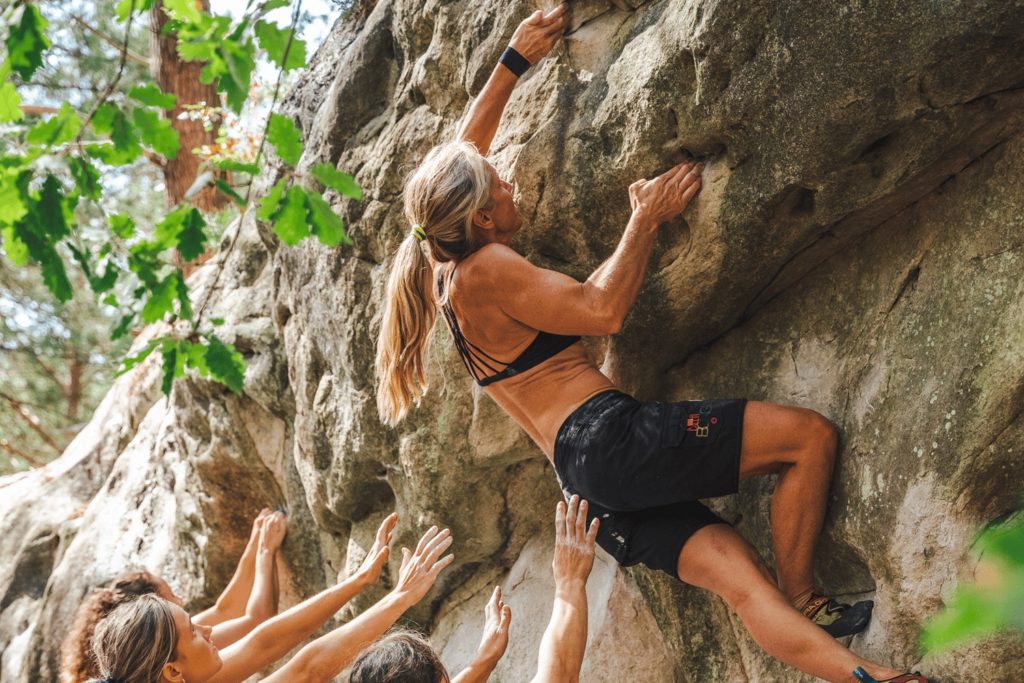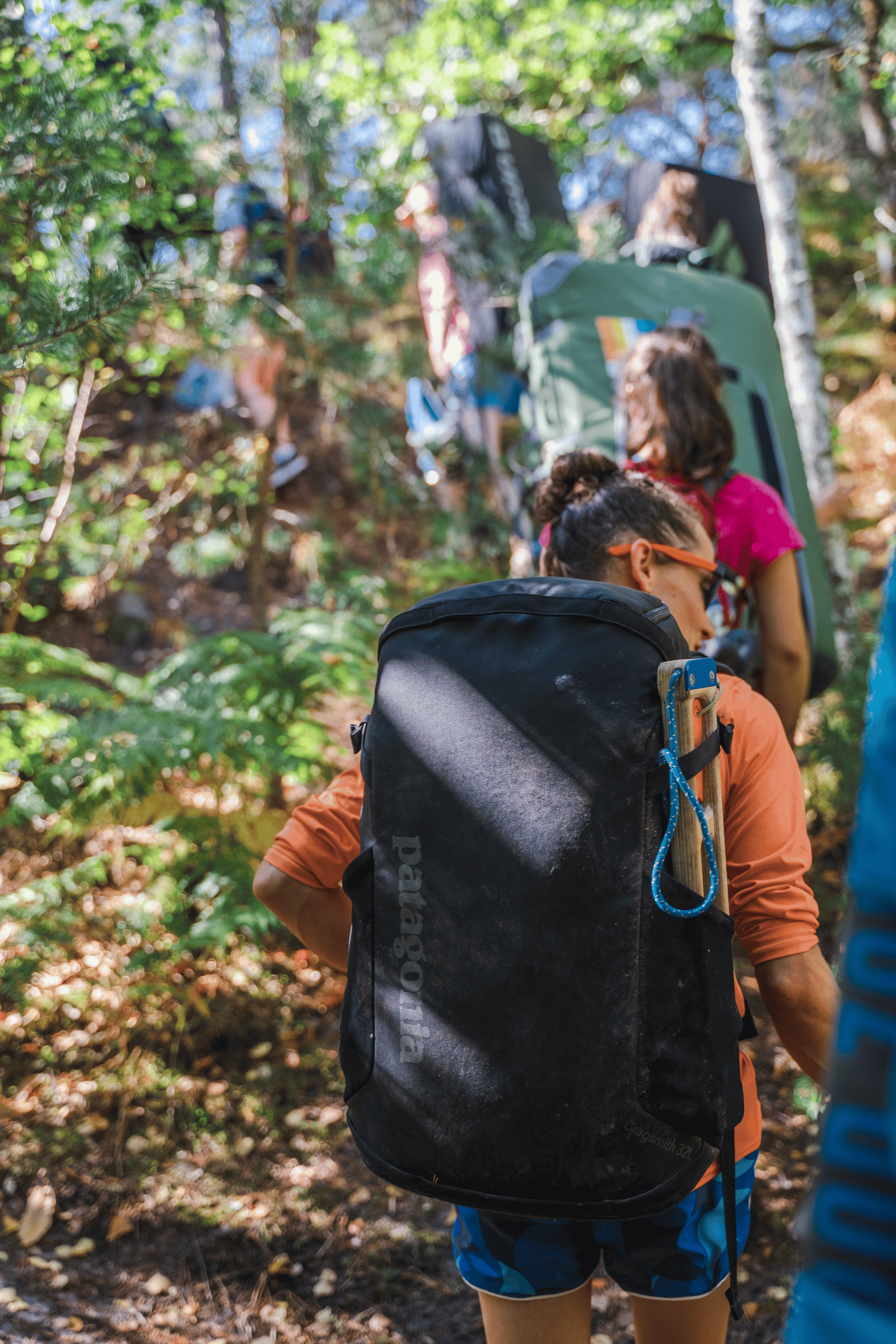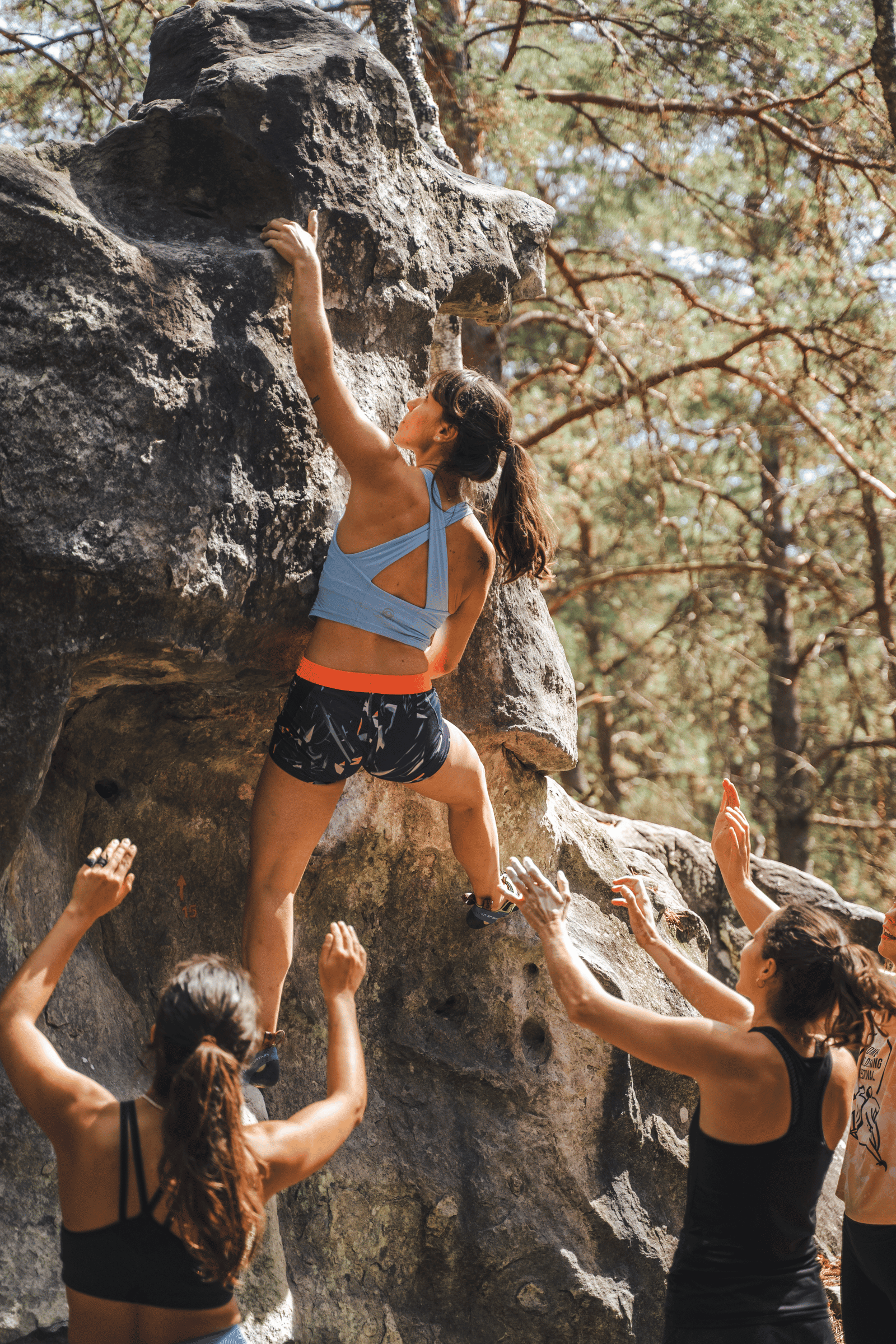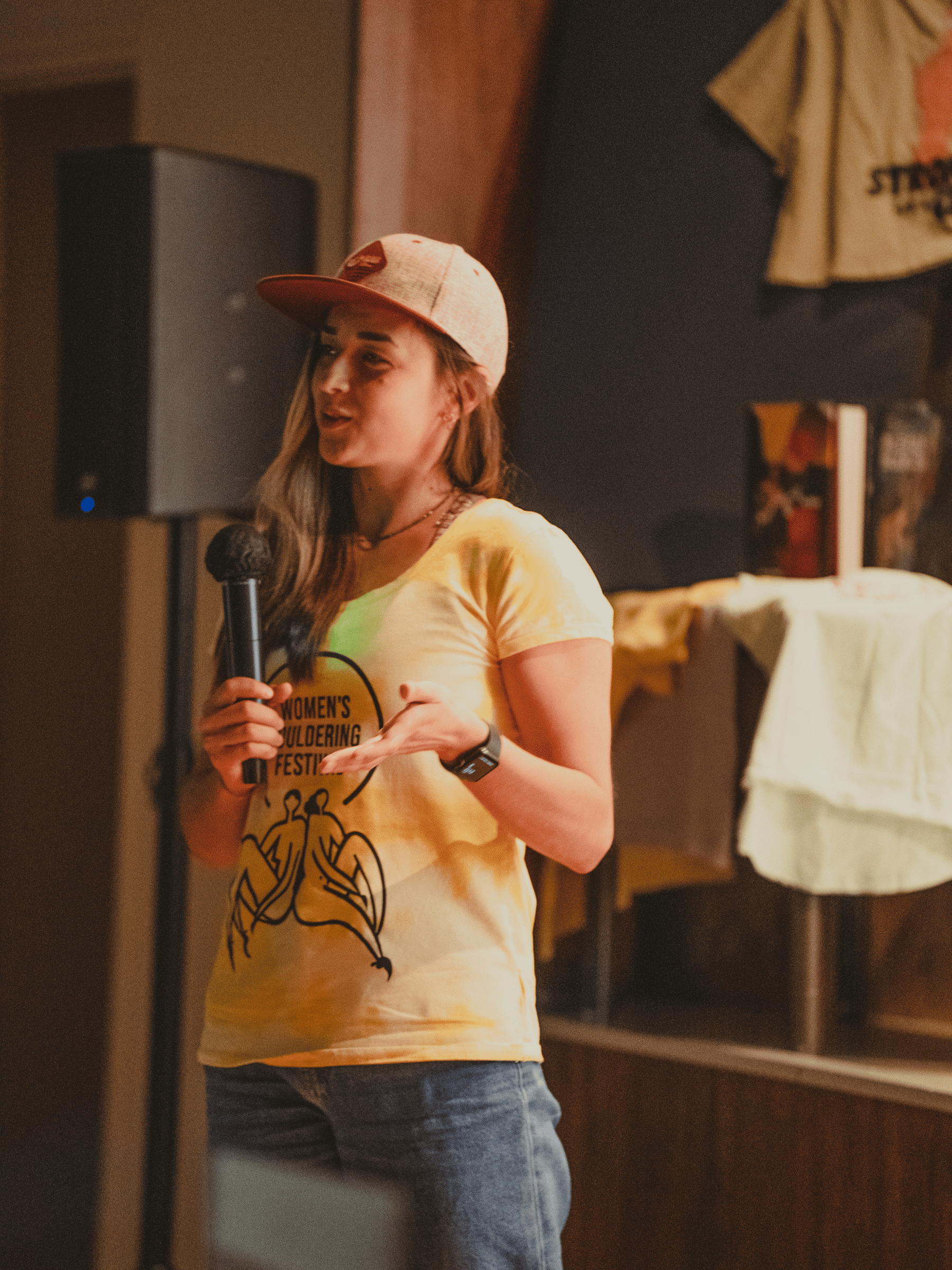The fifth edition of the bouldering festival created by Zofia Reych was held last weekend in the forest of Fontainebleau. More than a hundred participants gathered to share common values and the pleasure of climbing.
They were 120 gathered around the boulders of Fontainebleau, a small group “to preserve an intimate atmosphere.” 120 climbers, beginners, amateurs or professionals who responded to the invitation of Zofia Reych, a non-binary anthropologist of Polish origin and a passionate about climbing who recently published Born to Climb, a cultural history of climbing. During three days in the Bleau forest, it was all about about bouldering, but also about ecology, class struggle and inclusiveness, proof if any were needed that climbing and politics can go hand in hand.
The main idea was to share a good day of climbing in the forest
For its fifth edition, which took place from Friday, September the 2nd to Monday, September the 5th, the Women’s Bouldering Festival was organized around climbing sessions in small groups led by mentors. Among these experienced climbers, the bubbly Nolwen Berthier, who climbed the 9a+ of Supercrackinette a few months ago in the footsteps of Julia Chanourdie, was delighted to “share climbing techniques, parrying, but also good practices related to the fact of climbing outside, and to protect our environment“, she says just back from the festival. “But the main idea, she recalls, was to share a good day of climbing in the forest!” Because if the festival conveys ecological, feminist, social and solidarity values, it is with discretion, without excessive communication or pompous label.
An intersectional festival
The Women’s Bouldering Festival is part of an intersectional dynamic: a major current in feminism, intersectionality crosses and confronts issues in order to better reveal the discrimination facedby individuals, which often accumulates. At the heart of Zofia Reych’s preoccupations coexist the fight for the rights of women and gender minorities (such as non-binary or transgender people), against racism, against classism, for the inclusion of all, whatever their means, their origins, their sexual orientation and/or their possible handicap situation…
I wanted to create a safe space.
Zofia Reych
Does they work as an anthropologist have anything to do with they commitment? “No, I don’t think so“, says Zofia. “It’s just that when I moved to Fontainebleau, I was surrounded by educated white guys from the most privileged socio-professional categories. It was difficult to find women to climb, so I wanted to create an atmosphere conducive to them. A safe space, as they say in English, that is to say an environment in which all could feel confident, comfortable, supported and encouraged, whatever their past traumas.“
Keyword: diversity
Nolwen Berthier describes the festival as “orientated around meeting and sharing, which worked really well.” The three conferences held on Saturday at the end of the day gave, for example, the opportunity to hear stories of great diversity, from the journey of the climber and member of the British paraclimbing team, Leanora Volpe, to that of Jenya Kazbekova, who had to flee her war-torn country, Ukraine, to settle in Germany. A partnership with two British and American associations, supported financially by Patagonia, also made it possible to offer an entry ticket, including transport and accommodation, to two people whose social situation made such a trip unattainable.
Doing rather than talking,
a good summary of the spirit of the Women’s Bouldering Festival.
For the rest of the weekend, between the vegan meals and other demonstrations of flaming bolas, different workshops allowed the participants to learn how to open boulders, to raise awareness of the fight against the erosion of the fragile bleausard sandstone (in collaboration with the Office National des Forêts) or to clean the sites. “What I remember about the festival“, says Nolwen Berthier, who works to support companies in the ecological transition in parallel with her career as a professional climber, “is its power to raise awareness through transmission, through the mentoring sessions. Being involved in human exchanges is more effective than writing a manifesto to be displayed at the entrance to festivals, for example. The second thing is that the festival shows how important it is to invite people to take action.” Doing rather than talking is a good summary of the spirit of the Women’s Bouldering Festival.
Zofia Reych is thinking big. “We want to promote excellence in climbing and outdoor activities so that women and gender minorities can transpose it into their daily lives. Next year, we hope to bring some diversity to the climbing community in the Fontainebleau forest by inviting young people from the Paris region who are far away from climbing to come and climb and enjoy with us.“
The appointment is made and if, in the meantime, you feel like climbing with other women and discovering the legendary boulders of Fontainebleau, the association Girls in Bleau, created by the climber Caroline Sinno, organizes every month a non-mixed climbing day, open to all, whatever their level. “Our values are sharing, learning autonomy in outdoor sports, feminism, ecology, and of course respect for the forest of Fontainebleau“, writes Caroline Sinno. The next session is scheduled for 11 September 2022.








